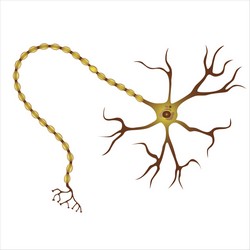Towards a better understanding of ALS
ALS is a progressive degenerative disorder of motor neurons affecting approximately 50 000 Europeans. This currently incurable disease presents in adulthood with patients succumbing to respiratory failure approximately three years after the onset of symptoms. The only available drug extends lifespan by a maximum of six months. The scope of the EU-funded EURO-MOTOR(opens in new window) (European multidisciplinary ALS network identification to cure motor neuron degeneration) project was to discover new causative and disease-modifying pathways to pave the way for novel therapies in ALS. In this context, researchers collected omics data from a generated harmonised database comprising over 1 800 cases and 3 254 controls, which also contained clinical, environmental exposure and lifestyle information. Considering that ALS is a rare disorder, a European-wide patient registry will be invaluable for current and future research. Proteomics analysis revealed the composition of toxic protein aggregates. Metabolomics led to the identification of common alterations in energy metabolism and other pathways associated with ALS and ALS-causing mutations. Furthermore, researchers identified several disease biomarkers from the gene expression profiles of ALS patients. Validation in in vitro and in vivo models of ALS unveiled several potential new therapeutic targets for ALS (ephrin signalling, HDAC6, ELP3, lipid/oxygen metabolism and DNA repair). The EURO-MOTOR studies uncovered six novel risk loci for ALS including C21orf2 and NEK1. This information altered the existing perception that ALS was either a simple Mendelian disease or a complex disorder of thousands of contributing single nucleotide polymorphisms (SNPs). The generated evidence strongly supported the distinct and important role of rare variations in ALS. Collectively, the findings of the EURO-MOTOR project are of great importance for patient stratification as well as for disease diagnosis and genetic counselling. The integration of the genomics, transcriptomics and metabolomics data, alongside potential environmental factors will lead to the design of effective therapeutic approaches.







